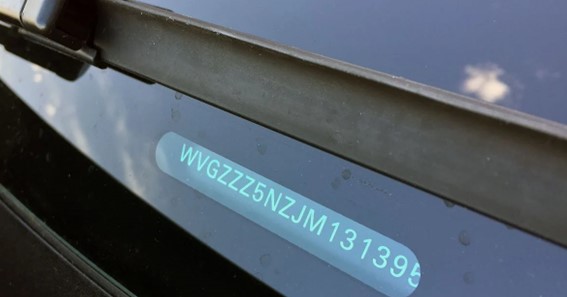A Vehicle Identification Number (VIN) is a unique serial number consisting of a 17-character string of letters and numbers used to identify a specific vehicle. There are a few different places where you can find your vehicle’s VIN. The most obvious place is on the dashboard – it should be located on the driver’s side, near the windshield. Another place to look is on the door pillar on the driver’s side – the VIN should be etched into the metal. Finally, you can find the VIN printed on the engine block, often near the firewall. Many online services such as Quick VIN Verification allow you to look up a vehicle’s VIN and quickly receive information such as its registration status and recorded mileage. Additionally, many dealerships keep records of their customer cars within their computer systems containing information such as accidents reported by insurance companies and maintenance issues each car has had over its lifetime.
How to decode a VIN
When deciphering a VIN, you need to understand the meaning of each character. Here’s a breakdown:
1st Character: Manufacturer
3rd Character: Type of Vehicle
4th & 5th Characters: Style of Vehicle
6th Character: Body Type
7th Character: Engine Size
8th Character: Model Year
9th Character: Country of Origin
10th, 11th & 12th Characters: Vehicle Features
13th, 14th & 15th Characters: Serial Number
Why VINs are important
- Safety Recalls
VINs are VERY useful for consumers to find out if their car has any safety recalls. All car manufacturer companies notify the National Highway Traffic Administration (NHTSA) of any potential recalls within 2 weeks of finding a potential problem and then post the recall to their website where you can check it against your VIN.
If you own a car that has been recalled (or one that is under recall), the NHTSA will send you an official notice in the mail about the issue(s).
- Insurance Policies
VINs are also important for insurance companies when assessing risk for new customers or customers looking to switch policies. They can use VINs to determine things like past driving history, frequency of accidents, cost of repairs, and more. This information helps insurers determine rates and coverage options.
- Financing
For people looking to finance a new or used car, the VIN can be used to check the history of the vehicle. This is important to know because it can affect things like the value of the car and how much money you may owe on it.
- Warranties
When you purchase a new car, it usually comes with a warranty from the manufacturer. This warranty is typically good for a certain number of miles or years and covers certain types of repairs. If you have to use your warranty, the VIN will be important in determining if your car is covered and what kind of coverage you have.
- Stolen Cars
If your car is ever stolen, the police will use the VIN to try and track it down. They may also use it to return the car to you if it is found.
- License Plates
In some states, you need to provide your car’s VIN when you get license plates. This helps the DMV keep track of cars and their owners.
- Maintenance and Repair Records
Whenever you take your car in for maintenance or repairs, the mechanic will typically write down the VIN. This helps them keep track of what work has been done on each car.
- Buying or Selling a Car
When buying or selling a car, the VIN can be used to transfer ownership of the vehicle. This is important because it ensures that the new owner is registered with the DMV and that they are responsible for any traffic violations or accidents that may occur.
- Tracking Vehicle Usage
For businesses with multiple vehicles, VINs can be used to track how each car is being used. This information can be helpful in managing maintenance schedules, fuel costs, and more.
- Finding a Car
If you’re looking for a specific car, you can use the VIN to find out if it’s been sold, what its features are, and where it’s located. This is especially helpful if you’re looking for a rare or hard-to-find car.
Overall, VINs are an important tool for consumers, businesses, and law enforcement agencies. Whether you’re looking to buy a new or used car, track down a stolen vehicle, or ensure that your insurance policy is up-to-date, the VIN can help provide key information about your car and its history. So next time you see a mysterious 17-digit string of numbers on your dashboard, take a closer look — it could be more useful than you think!
To Know Some Great Stuff Do Visit Populationzone
To Know Some Great Stuff Do Visit Cheaperly
To Know Some Great Stuff Do Visit Largably
To Know Some Great Stuff Do Visit Bigbii







